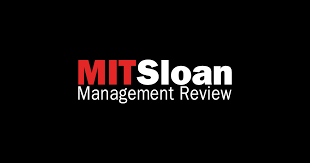
Extractive summaries and key takeaways from the articles curated from TOP TEN BUSINESS MAGAZINES to promote informed business decision-making | Week 299 | June 2-8, 2023.

Cashing Out Excellence
By Robert D. Austin et al., | MIT Sloan Management Review | June 05, 2023
Listen to the Extractive Summary of the Article
Organizations struggle to cope with disruptive events — such as the pandemic and its aftermath, which threw airports and airlines into operational turmoil and caused supply chains to collapse. To manage short-term appearances, leaders and their predecessors had “cashed out” capabilities and allegiances they previously relied on to help them deal with unanticipated changes. It’s a practice, a kind of leadership malaise, that has become too common and too accepted: Values, qualities, and relationships that have been honed over many years and served as the foundation for earlier successes are exchanged for near-term monetary rewards — typically in the form of cost reductions and stock price improvements that prove to be ephemeral.
The authors call this style of short-term leadership performance hacking. Performance hacking is the practice of giving the appearance of effective leadership by delivering on particular metrics, without delivering real performance. It involves companies and their leaders polishing financials through the calculated manipulation of investment planning and cost-cutting measures instead of prioritizing the creation of long-term value. What performance hacking doesn’t deliver is updated facilities and computer systems; investments in product/process research and development; the ability to master or exploit new technologies; or a loyal, capable workforce.
Discouraging performance hacking begins with recognizing when it’s happening. Signs are often apparent to insiders. Some of the indicators are: sudden, unexplained improvements in performance ratios or key results, or trends that seem unrealistically smooth; a degraded customer experience; sudden enthusiasm for outsourcing, or a shift to more transactional people management that downplays the importance of employee expertise; decreased leadership emphasis on the operational characteristics of the business, and fewer leaders with industry expertise; and abandoning “moonshot” development projects.
Boards can be complicit in performance hacking. But at companies with strong, independent governance, boards of directors have a number of tools that allow them to encourage performance that benefits companies and their investors in the long term.
The harm caused by performance hacking goes beyond companies and their employees, customers, and investors, however. If the only way for the market to correct for performance hacking is to let companies implode, the public at large can bear significant collateral damage.
If a business leader like Welch could make performance hacking seem desirable, it should be possible for another high-profile leader (or a group of them) to make investing for the long term seem fashionable again.
3 key takeaways from the article
- Organizations struggle to cope with disruptive events — such as the pandemic and its aftermath. To manage short-term appearances, leaders and their predecessors had “cashed out” capabilities and allegiances they previously relied on to help them deal with unanticipated changes. It’s a practice, a kind of leadership malaise, that has become too common and too accepted. Referred as leadership performance hacking.
- Performance hacking involves companies and their leaders polishing financials through the calculated manipulation of investment planning and cost-cutting measures instead of prioritizing the creation of long-term value.
- Some of the indicators of performance hacking are: sudden, unexplained improvements in performance ratios or key results, or trends that seem unrealistically smooth; a degraded customer experience; sudden enthusiasm for outsourcing, or a shift to more transactional people management that downplays the importance of employee expertise; decreased leadership emphasis on the operational characteristics of the business, and fewer leaders with industry expertise; and abandoning “moonshot” development projects.
(Copyright)
Topics: Strategy, Business Model, Financial Performance
